How HMRC conducts tax investigations
How to reduce penalties for accounting errors.
HMRC recently announced new powers to investigate companies they suspect of evading taxes, so as a business owner, you might be worrying about what happens if your company comes under scrutiny.
Even if you’ve played entirely by the rules, the stress of an investigation can be a lot to deal with, especially after the last few difficult years. However, you needn’t worry – understanding the process will help you and your company deal with the situation and we’ll be on hand to support you throughout.
If, for whatever reason, you come under investigation, here’s what you need to know.
Why are you being investigated?
Just because your business is being investigated, it doesn’t mean you’ve done anything wrong. Some investigations are called entirely at random.
Otherwise, it might be that the sector you work in is facing a lot of scrutiny, as is currently happening with companies selling electronic sale suppression systems.
Alternatively it may be that you filed your tax return late, or that it contained accidental inconsistencies.
Knowing exactly why you’re being investigated by HMRC is a great way to understand the severity of the investigation and how you can best prepare.
Once their investigation begins, HMRC can look into every aspect of your tax affairs. This could mean the tax you’ve paid, your self assessment and business tax returns, PAYE or VAT records and your business accounts.
Preparing such information is highly advised, as we’ll see in more detail later on.
What are the types of inquiry?
HMRC conducts three main types of inquiry. First, there are random checks. As the name suggests, these inquiries can open into the affairs of any business at any time. As long as you’ve kept your accounts up to date and comprehensive, there’s no need for you to worry.
Second, there are aspect inquiries. These inquiries look into one part of your accounts in which HMRC suspect an error may have been made. This could very easily be down to a mistake at the accounting stage, rather than a deliberate attempt to break the rules. A common error is forgetting to include savings income on your tax return.
Lastly, there are full inquiries, which happen if HMRC thinks there is a strong chance your company has made a large scale accountancy error or series of errors. In this case, they could take a look at all accounts, both business and personal, to get to the bottom of the issue.
It’s worth noting that the first two inquiries can turn into full inquiries if HMRC finds major inconsistencies or issues with your company’s accounts.
How does the process work?
If your company is going to be investigated, HMRC will contact you through your accountant, or they might contact you directly by a letter or by telephone.
If you realise there and then that you’ve made a mistake in your tax returns, it’s important you admit it as soon as possible. HMRC will take your honesty into account during their investigations, and trying to cover up errors could end in more serious consequences for you and your firm.
Once the investigation is up and running, investigators might want to visit your company or even your home. Under these circumstances, we strongly advise that you have us present, perhaps suggesting a meeting at our offices instead. The situation can feel quite high pressure, so having the experience and perspective of an accountant can be of great help.
The length of an investigation varies. It may be that HMRC finds everything they need fairly swiftly and are able to promptly draw their conclusions. The length of an investigation can be determined by its range and the speed with which they are given information.
Most investigations that are over quickly have simple explanations. For example, if your income shrank over one month, suspicions can easily be allayed by evidence of illness or injury. But if your case is less easily solvable, the investigation will probably take longer. It will help if you get the ball rolling by replying promptly to any requests for information – you will generally be given 30 days to do so.
It’s important not to feel like you are in grave trouble. Most tax investigations simply end with HMRC informing you if you have paid too much or too little tax, letting you know if there are any penalties.
How far back will the investigation go?
This very much depends on what is being investigated and the extent of their inquiries. If HMRC believes the errors to be innocently made, they can look back at records going back four years. If they decide mistakes are the result of careless behaviour, this can be extended to six years – with the exception of VAT which is still four years.
If HMRC believes there has been deliberate tax evasion, they can request records going back twenty years.
What are the penalties?
You may find yourself facing a penalty if your tax returns or other documents give the wrong amount of tax owed or if you didn’t notify HMRC they were taxing you at too low a level.
There are several factors that determine the level of penalty you could face:
- if HMRC believe you deliberately evaded tax
- if you notified HMRC about any errors made
- how much time has passed.
HMRC’s penalties come under different categories, depending on their seriousness and how the errors came about.
First, it will apply a penalty based on whether you practised reasonable care in your tax affairs or not. If you’re found to have been negligent in your duties, you can face a penalty of up to 30% of the extra tax due. This is arguably the least serious judgement.
Next, HMRC will determine whether your mistake was a deliberate error. If you made no effort to conceal your fraudulence, the penalty can range from 20 to 70% of the tax owed. If you tried to hide the deliberate error, your penalty can range from 30% to 100%.
If you feel you’re heading for a penalty, it’s possible to reduce it by being cooperative and helpful. Make sure you tell HMRC about any errors you are aware of, let them know how much you think you owe and give them swift and full access to any information they seek.
Deliberately unpaid tax
While we hope this won’t be the case, it might be that HMRC decides you have committed tax fraud. If this is the case, you should ask about their contractual disclosure facility. This gives you the chance to give a full disclosure of any unpaid tax, in return for immunity from prosecution. This only applies to individuals rather than companies.
If you have made genuine errors and want to disclose them, the contractual disclosure facility won’t be the right path to take. Instead, cooperate with HMRC and you’ll probably just be hit with a small financial penalty.
If HMRC ever investigates your business, we’ll be by your side. We’ll give you the best advice and guidance to straighten the situation out. If there’s anything else you need to know about facing a tax investigation, just get in touch.
Talk to us about HMRC investigations.





